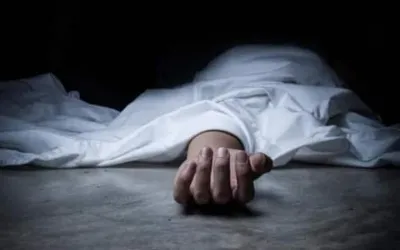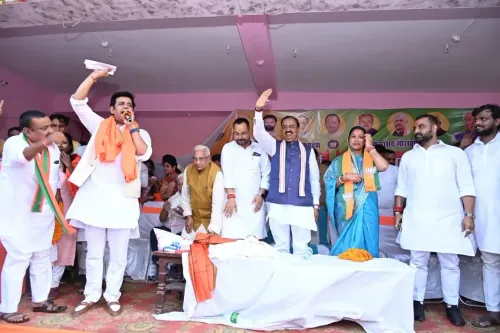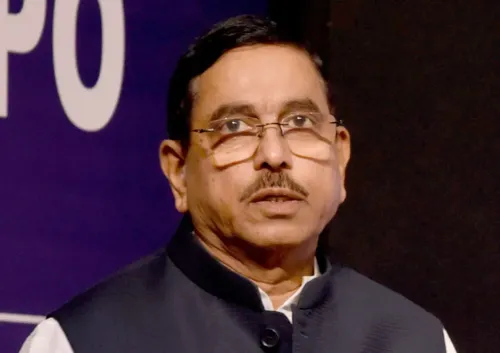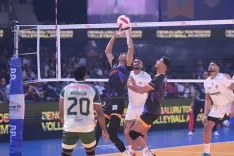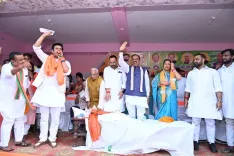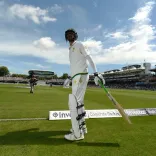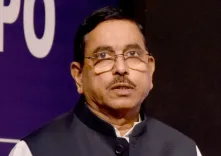What is the Silence from Tipra Motha Party on Support Withdrawal?
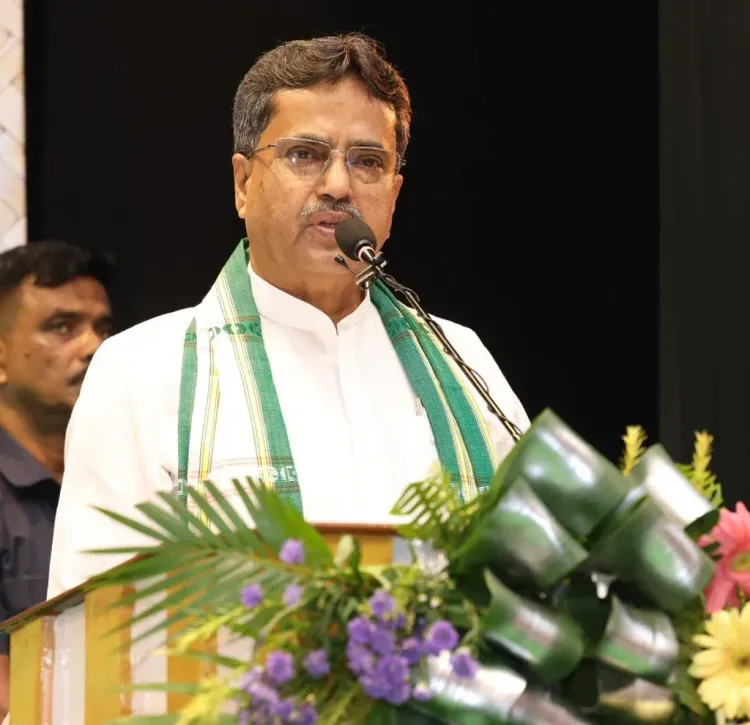
Synopsis
Key Takeaways
- Chief Minister Manik Saha has not received formal communication from the Tipra Motha Party regarding support withdrawal.
- The Tipra Motha Party's demands focus on tribal autonomy and socio-economic development.
- The tripartite accord is crucial for addressing tribal concerns in Tripura.
- The BJP maintains a stable majority in the Tripura Assembly.
- Ongoing negotiations with Union Home Minister Amit Shah are pivotal for resolving tensions.
Agartala, July 6 (NationPress) Following the Tipra Motha Party's (TMP) warning to withdraw support from the government due to the perceived non-implementation of the tripartite accord, Tripura Chief Minister Manik Saha stated on Sunday that he has not received any communication from the junior coalition partner.
The Chief Minister mentioned that no official notice has been received from TMP regarding their intentions. “While their party MLA, Ranjit Debbarma, made remarks regarding the tripartite accord, I have yet to see anything documented from TMP,” Saha informed the media during an event.
When questioned about TMP leaders voicing their concerns about the alleged lack of progress on the tripartite accord signed on March 2 last year, the Chief Minister noted, “I maintain regular communication with Tipra Motha Party chief Pradyot Bikram Manikya Debbarma. The implementation process of the tripartite accord is currently underway.”
Senior TMP leader and MLA Rajit Debbarma threatened on Saturday to pull support from the BJP-led government in Tripura over the failure to implement the tripartite accord. He indicated that party leaders plan to meet with Union Home Minister Amit Shah to discuss their outstanding demands. “If our issues are not resolved in the meeting with the Union Home Minister, we will consider withdrawing our support from the BJP government in Tripura,” Debbarma stated to the press.
After the MLA's declaration of potential support withdrawal, TMP Chief Pradyot Bikram Manikya Debbarma commented on Saturday night: "If MLA Ranjit Debbarma mentioned withdrawing support, it stems from a sense of real disappointment and insecurity felt by the tribals in rural and interior regions." He added that their meeting with the Union Home Minister is anticipated later this month and is vital due to the ongoing frustration among party members at the grassroots level regarding the tripartite accord's implementation.
Following extensive discussions and the signing of a tripartite agreement with the Centre and the Tripura government on March 2 last year, the then-opposition TMP, holding 13 MLAs, joined the BJP-led coalition government on March 7 last year, marking a significant shift in Tripura's political landscape. On that day, two TMP MLAs— Animesh Debbarma and Brishaketu Debbarma—were inducted into the ministry headed by Chief Minister Manik Saha. The TMP’s demands focus on enhanced autonomy for the Tripura Tribal Areas Autonomous District Council (TTAADC) and advancing the socio-economic conditions of the tribal population.
The TMP originally sought a 'Greater Tipraland'—a separate state for tribals under Articles 2 and 3 of the Constitution.
The ruling BJP, alongside the opposition CPI-M and Congress, opposes the TMP’s demand for ‘Greater Tipraland’.
The TMP emerged as a political entity in April 2021 after it gained control of the influential TTAADC, which governs two-thirds of Tripura's 10,491 sq km area and is home to over 1.2 million people, approximately 84% of whom are tribals. The tribal community, comprising one-third of Tripura’s four million population, plays a pivotal role in the state's electoral dynamics.
If the TMP were to withdraw support, it would not jeopardize the stability of the BJP-led government, as the party maintains an overwhelming majority with 33 MLAs. In the 60-member Assembly, the BJP commands a majority with 33 MLAs, while its other ally, the Indigenous People's Front of Tripura (IPFT), holds one MLA.

